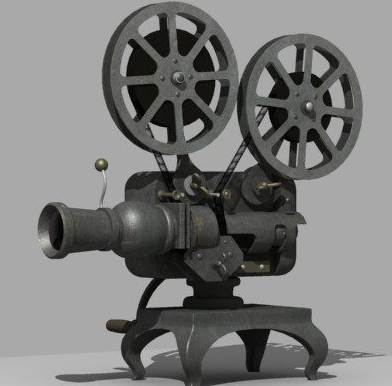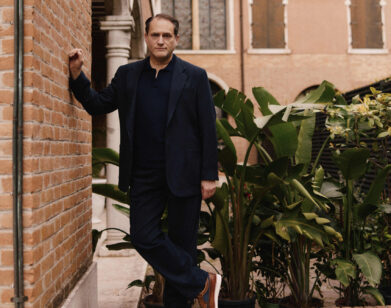Night at the Roud Table

Richard Roud and Wim Wenders: Could such a high-brow meeting happen today?
The New York Times once asked Richard Roud, who co-founded the New York Film Festival in 1963 with Amos Vogel, to parse the festival panel’s voting process. He offered this Ebert-ready rubric:
1. I hate this dreadful film, and I’ll hate the rest of you if you accept it.
2. I don’t like it, but if the rest of you like it, I won’t be angry.
3. Yes.
4. It must be in the festival.
5. It’s a masterpiece!
To commemorate the twentieth year since Roud’s passing, the Lincoln Center presents “Remembering Richard,” two of his favorite films: Jean-Marie Straub and Danièle Huillet’s stark take on Bach, Chronicle of Anna Magdalena Bach, and Max Ophüls sumptuously-shot orbit of buzzing lovers, La Ronde.
For the baby-boomer cineaste, Roud represented a fount of film knowledge—a historian, an astute critic, and a vindicated advocate of a wide range of now-canonized filmmakers, including Jean-Luc Godard, Werner Herzog, Sergei Paradjanov, and Martin Scorsese. For 25 years, Roud was the festival’s program director and director, and his curated international programs were the syllabi for film students worldwide. Late critic Manny Farber called the NYFF “the Roud Roulette Wheel at the Lincoln Center.”
To understand Roud’s influence, take Scorsese as an example. Roud eventually gave the promising young filmmaker his Big Apple break by including Mean Streets in the 1973 NYFF. But he stamped rejection on Scorsese’s first, Who’s That Knocking at My Door, saying the film was “living aesthetically beyond [the director’s] means.”
With his omnivorous ardor for film, Roud was the American Henri Langlois, the legendary archivist, auteurist, and founder of Paris’ Cinémathèque Française. Both believed that there’s a filmic grail to be sought, and shared: It’s no coincidence that Roud penned a fulsome portrait of the eccentric figure in his 1983 biography Passion for Films. While his contentious ousting as NYFF director in 1987 didn’t engender the halt-production of Langlois’ 1968 dismissal (although estimable Time critic Richard Corliss, among others, resigned in solidarity), Roud’s legacy endures in the “cinemaddicts,” to borrow James Agee’s term, that he cultivated and released on New York.






